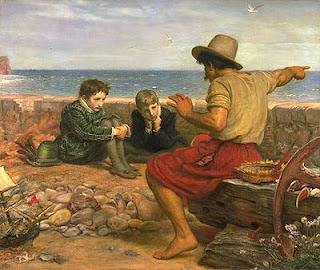History is nothing more than story. Often it can be diluted to mere names, dates, and facts but when that happens the purpose of knowing history is lost. History tells us who we are, where we came from, and why we are here. It also tells us about others, opens new worlds, expands our viewpoints, and introduces us to people, things, places, and beliefs we may never experience first hand. These stories cultivate wonder and curiosity, those traits essential to understanding and appreciating history.
Throughout recorded time we have always told stories. From the biblical accounts of Creation and the great flood and the tower of Babel, to Homer's epics Iliad and Odyssey, to classics like Beowulf and the Epic of Gilgamesh, these accounts frame our origins, give our lives meaning and worth.
And story telling also goes the other way. The stories we tell tell others what we value and find to be worthwhile. When those ancient Greeks recounted the battle for Helen, they were expressing their admiration for bravery, cunning, and beauty. When the Hebrews recounted the story of Passover, they were reminding their children of their deliverance from slavery in Egypt and recounting God's faithfulness to fulfill his promises. When the early Anglo-Saxons spoke of Beowulf fighting the fearsome Grendel, they were expressing the difficulty of a life lived under constant threat of attack.
As humans, we long for connection and stories provide that. Even now in our digital age where we rarely take the time to sit around a fire and tell one another where we came from, there are organizations and endowments that recognize the importance of this and have provided outlets for people to tell their stories. I listen to This American Life every week and I enjoy hearing people recount their memories on the StoryCorps podcast. While the people who are interviewed are often very different from me, their stories are invariably interesting and sometimes profoundly moving. I'm challenged to see the world through different eyes.
Additionally, our capacity for hearing stories is one that grows as it is fed. When students are introduced to history through stories, they rarely get bored. Instead their curiosity is piqued and they want to delve further into these wonderful accounts of the men and women who came before them. Textbooks rarely elicit this sort of response. And I've said it here before, curiosity is essential. Incorporating stories into your children's education will increase their capacity for curiosity and wonder and enrich their lives.
To conclude, I'm sharing this Ted talk by Ben Dunlap in which he extolls the virtues of cultivating an insatiable curiosity. Instead of presenting studies and speaking in academic jargon, he told stories. He told of a Hungarian Jew who survived the Holocaust and made his way to America where he fought racism in South Carolina. He told of men who achieved great success in life because of their desire to always know more, to reach further, to never be satisfied with simplistic explanations. And this is the power of story. We are inspired, challenged (you may not agree with everything Dunlap says), and encouraged.
In case you missed it:






No comments:
Post a Comment